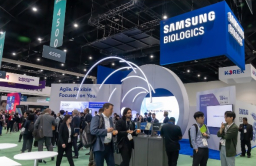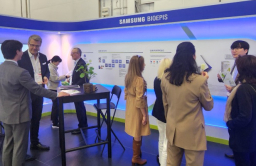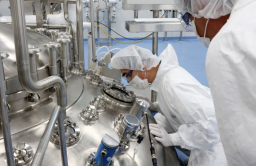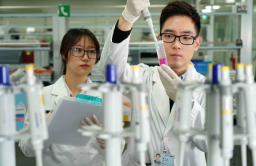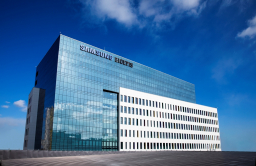-
KOSPI 2577.27 -2.21 -0.09%
-
KOSDAQ 722.52 -7.07 -0.97%
-
KOSPI200 341.49 +0.02 +0.01%
-
USD/KRW 1396 -2.00 0.14%
Samsung Bioepis eyes record sales in 2024 after stellar Q3
Bio & Pharma
Samsung Bioepis eyes record sales in 2024 after stellar Q3
The S.Korean biosimilar developer attributed its upbeat earnings to milestone payments worth about $160 million
By
Oct 24, 2024 (Gmt+09:00)
3
Min read
News+
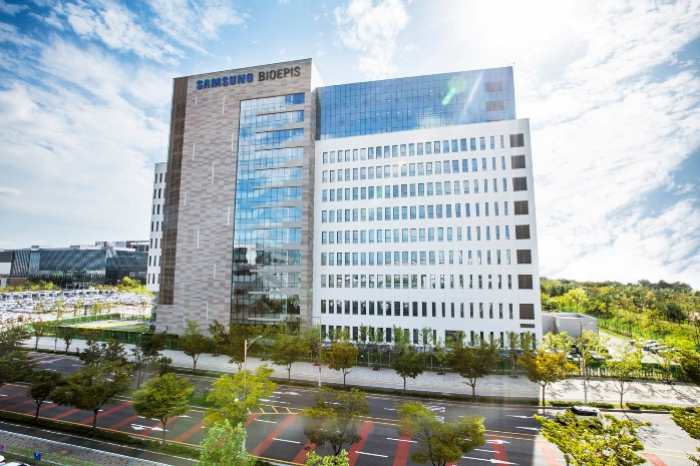
Samsung Bioepis Co., Samsung Biologics Co.'s fully owned biosimilar subsidiary, is expected to post its best-ever annual revenue this year after sales in the first three quarters of this year already outpaced its all-time high yearly sales of over 1 trillion won ($725.2 million) last year.
The South Korean biosimilar-developing company under Samsung Group reported on Wednesday that its operating profit for the third quarter ended in September jumped 38% from the same period of last year to reach 67.9 billion won.
Over the same period, sales climbed 26% to 330.3 billion won.
The third-quarter results bumped up the company’s total operating profit in the first nine months of this year to 363.1 billion won and brought its sales to 1.14 trillion won.
Both cumulative figures already beat the company’s annual operating profit and sales for 2023, which were 205.4 billion won and 1.02 trillion won, respectively.
Last year’s revenue was the company’s all-time high annual result.
Samsung Bioepis attributed the stellar results largely to milestone payments worth 220.5 billion won from its US and European partners Biogen Inc. and Sandoz Group AG, respectively, following the approval of its biosimilars in the US and Europe in the first half.
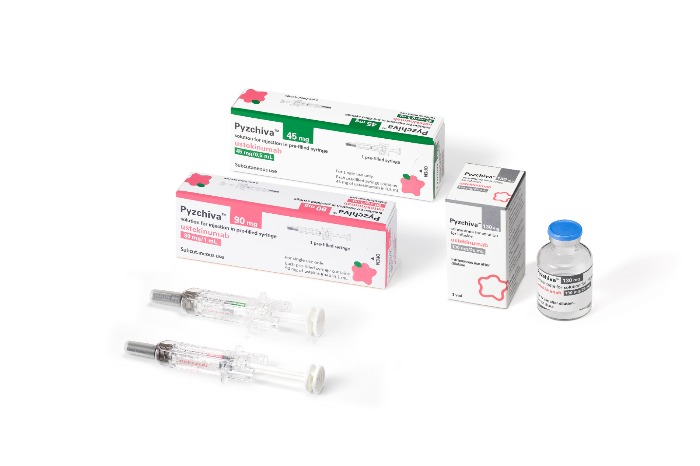
Considering that one of those biosimilars already hit the European market, and other copycat drugs are set to undergo approval processes for global sales, the Korean biosimilar developer is expected to report record-high annual sales for 2024.
Meritz Securities Co. forecasts Samsung Bioepis will reap 1.54 trillion won in annual revenue this year, while Kiwoom Securities Co. expects 1.47 trillion won.
MORE BIOSIMILAR APPROVALS AHEAD
Earlier this year, Samsung Bioepis got the nod for marketing Opuviz (Aflibercept), its biosimilar to Beyer’s Eylea for the treatment of various eye diseases, in the US, as well as Pyzchiva (Ustekinumab), its copycat drug to Janssen Pharmaceutical’s Stelara for the treatment of moderate to severe plaque psoriasis in adults, in both the US and Europe.
Opuviz is waiting for final approval or sale in Europe, which could come before the end of this year.
In July, its European partner Sandoz launched its Stelara biosimilar in Europe, and the same copycat drug could hit the US market in February depending on a patent agreement with the original treatment developer.
Samsung Bioepis is also readying to apply for the global approval of SB16, its biosimilar to Amgen’s Prolia for the treatment of osteoporosis, treatment-induced bone loss, bone metastases and giant bone cell tumors.

It has been carrying out both phase 1 and 3 clinical trials of SB27, its biosimilar to the world’s best-selling oncology drug Keytruda by Merck, simultaneously, to accelerate the copycat drug’s development as the original drug’s patent expires in 2028.
Samsung Bioepis has launched nine biosimilars in Korea and eight in Europe and the US.
It also has been carrying out preclinical research for the development of a novel drug. It has joined hands with Korean biotech startup IntoCell to develop a new antibody-drug conjugate (ADC) through open innovation.
SAMSUNG BIOLOGICS BENEFITS
Its parent Samsung Biologics, Korea’s No. 1 bio contract development and manufacturing organization (CDMO), also benefited from its biosimilar subsidiary’s strong performance.
On the same day, Samsung Biologics reported 1.19 trillion won in consolidated sales for the third quarter, up 15% from a year ago. It was the highest-ever result for the quarter, pushing total revenue for the first three quarters above 3 trillion won for the first time.
Its consolidated operating profit for the quarter also added 6% on-year to 338.6 billion won.
The company’s Plants 1 through 3 continued operating at full utilization rates on strong orders, while its newest Plant 4 is up and running well.
Encouraged by the successful ramp-up of Plant 4 and favorable foreign exchange rates, Samsung Biologics revised upward its annual revenue growth guidance to 15-20% from 10-15%.
Write to Dae-Kyu Ahn at powerzanic@hankyung.com
Sookyung Seo edited this article.
More To Read
-
Jun 07, 2024 (Gmt+09:00)
-
May 27, 2024 (Gmt+09:00)
-
Nov 28, 2023 (Gmt+09:00)
-
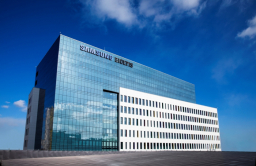 Bio & PharmaSamsung Bioepis to cooperate with Swiss firm Sandoz
Bio & PharmaSamsung Bioepis to cooperate with Swiss firm SandozSep 11, 2023 (Gmt+09:00)
-
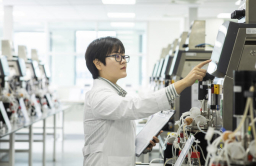 Bio & PharmaSamsung Bioepis seeks to buy Biogen biosimilar unit
Bio & PharmaSamsung Bioepis seeks to buy Biogen biosimilar unitAug 02, 2023 (Gmt+09:00)
-
Mar 06, 2023 (Gmt+09:00)
-
Jul 18, 2022 (Gmt+09:00)


